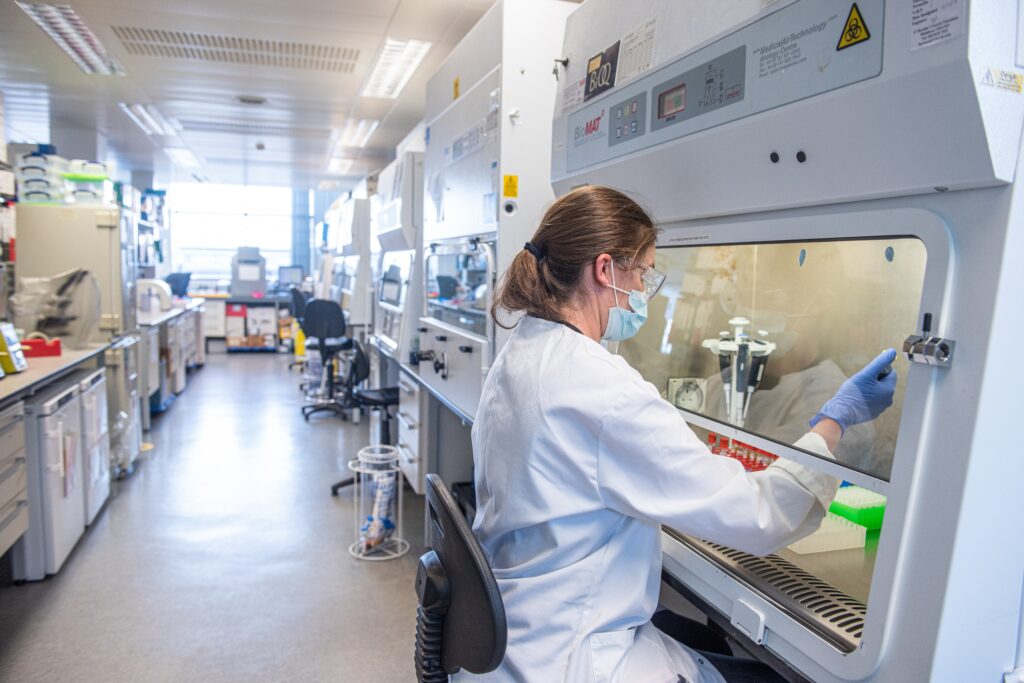The Oxford Vaccine Group (OVG), which led the rapid clinical development of the Oxford vaccine in COVID-19 in the pandemic, has been awarded £7.8 million by UK Aid for research into the prevention of five dangerous diseases with epidemic or pandemic potential.

The awards will fund research into vaccines against:
- Chikungunya and mayaro virus
- Marburg virus
- Plague (Yersinia pestis)
- Q Fever (Coxiella burneti)
- Sudan Ebolavirus
The Department of Health and Social Care (DHSC), as part of UK Vaccine Network (UKVN), has made these financial awards to a UK Aid programme, to develop vaccines for diseases with epidemic potential in low and middle-income countries (LMICs).
The development of safe and effective vaccination against diseases that cause substantial morbidity and mortality has been one of the foremost scientific advances of the 21st century and OVG is one of the world’s leading academic vaccine research teams.
Its current research, supported by the NIHR Oxford Biomedical Research Centre (BRC), includes the study of vaccines for outbreak pathogens and pandemics and, in collaboration with Oxford’s Pandemic Sciences Institute, it draws upon experience and lessons learnt from COVID-19 pandemic to identify and prepare for future pandemic threats.
Professor Sir Andrew Pollard, Director of OVG and the Ashall Professor of Infection and Immunity at the Pandemic Sciences Institute, said: “The recent pandemic has highlighted the importance of making vaccines against potential threats to humanity and it is in that context that we are delighted to receive this new funding to drive our vital research into vaccines to protect communities against Marburg virus, Sudan Ebolavirus, plague, Q Fever and chikungunya and mayaro virus.
“This critical work will help prevent future outbreaks in low- and middle-income countries and offer protection against future pandemics, as previously realised with the Oxford/AstraZeneca vaccine for COVID-19.”
Professor Teresa Lambe, Calleva Head of Vaccine Immunology at the Department of Paediatrics, and a Professor of Vaccinology and Immunology at OVG and the Pandemic Sciences Institute, said: “These awards are another important milestone in pandemic prevention. This funding will not only support our efforts to develop life-saving protection for people in low and middle-income countries, but will ensure the UK can respond quickly to potential future pandemic threats.”
Dr Young Chan Kim, a Sir Henry Wellcome Fellow and Principal Investigator at OVG who will be leading the Plague, Q-fever, and Alphaviruses programmes under the direction of Professor Pollard, said: “We are thrilled to receive these awards to develop new vaccines against these pathogens. This funding will allow us to accelerate our efforts in developing affordable and accessible vaccines that are well-suited for outbreak prevention and general immunisation in low-and-middle-income countries.”
The UKVN programme is funded through UK Official Development Assistance (ODA) via the DHSC. Awards under this programme have been made through competitions run in partnership with BBSRC, EPSRC, Innovate UK and NIHR.